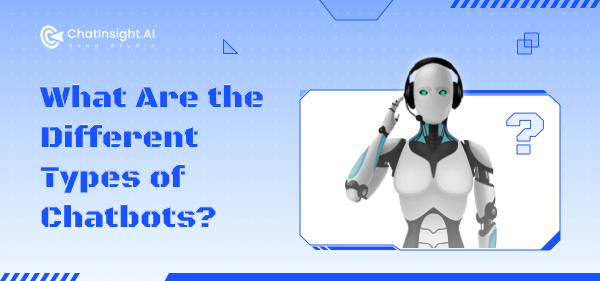Conversational AI in Retail Boosts Service and Efficiency
This is the 21st century, where everyone uses technology, at least a mobile phone. This is a more revolutionized age where everything from buying to selling is shifting towards online. Because of the customer's online presence, every business, such as retail, turns from physical shopping lists and store-hopping to online shopping. Due to COVID-19, e-commerce is growing and generating substantial savings for retailers.
Still, some people hesitate to adopt technology, but 90% of retail businesses use the latest AI technology for both the customer and the support rep. According to research, the retail industry will grow to $5.4 trillion this year in online selling. It's because of a convenient way to buy and sell products without any physical shop. You can promote your business within a day by running ads and campaigns.
Yes, online businesses get access to their customer quickly, but it has the potential to enhance customer satisfaction. That is possible by providing high-end customer support and efficient services without delay.
Hiring a significant labor force to fulfill these tasks is expensive, but now you can do it at a meager one-time cost via conversational AI for retail. Yes, you can do it with an AI chatbot to provide online shoppers with an 'in-store' experience; the symbiosis of chatbots and commerce is unmistakable.
Let's explore how conversational AI is revolutionizing the world of retail.
1Overview of Conversational AI in Retail
Conversational AI combines chatbot and voice assistance based on intelligent algorithms and natural language processing. It is designed to offer more human-like interaction in virtual business dealings. With automated responses and fast communication, the interaction between businesses and consumers becomes more fruitful.
This AI-driven communication tool emerges as a catalyst for innovation that fills the communication gap and bridges the connection between online platforms and physical stores. As customers move to digital devices, they are looking for convenient ways of shopping and getting assistance. Retailers are integrating conversational retail AI chatbots in their brands to meet this demand for smoother transactions and efficient issue resolutions.
2Why is Conversational AI Important For Retail?
Do you like to wait to buy a product or to get refund assistance? Of course not, because time is money, especially when you are in a market to purchase. These fast-dealing behaviors of customers seamlessly exist in the online market. That's where you can compete the traditional shortcoming with a conversational AI chatbot that is worthwhile for customers and support representatives.
The juniper research proves retail sales double for businesses using AI conversational Chatbots. Now, it's more convenient to handle encompassing orders, returns, package tracking, and inquiries that ensure the satisfaction of both support agents and customers.
Billions of online customers have queries to resolve. Can you answer them at a time? Yes, it's possible, but only with the integration of conversational AI.
3What are the Benefits of Conversational AI in Retail?
Conversational AAI is a chatbot that deals with their customers in voice messages. A human-like one transforms the customer experience and operational efficiency. Some of the expected benefits linked with conversational AI in retail industry are
1. 24/7 Support:
The AI-based chatbot can deal with customers around the clock without delay. The 24/7 availability addresses customer queries and concerns at any time. Chatbots have no geographical boundaries and take a few seconds to connect with their digital dives. Hiring people to manage support tasks that work all day and night takes work. The only solution is to adopt conversational AI services in your organizations.
2. Automate Redundant Tasks:
Getting fed up and bored with repetitive and mundane tasks is human nature. Where conversational AI for retail dives to automate repetitive tasks and focus on more complex and value-added activities, AI tools can train and resolve customers' inquiries based on how you've historically done it.
3. Save Money & Time:
The retail chatbot automates your business's tasks and frees up your time and effort. With a time investment, you can create your AI chatbot to handle your business inquiries more effectively and optimize their operational budgets.
4. Personalized Recommendations:
Conversational AI chatbots can store customers' data and offer personalized recommendations. It also helps in decision-making based on the correct information and increases the chances of conversions.
5. Scalability:
With time, retail businesses grow, raising a challenge to handle an increasing volume of customer interactions. Due to high-end natural language processing algorithms, conversational retail offers solutions in peak shopping seasons.
6. Better Brand Awareness:
The latest AI chatbot can represent the brand's values and update its customers about the latest products, promotions, and discounts—crucial analysis and the right strategy help to make an informed decision and reinforce brand identity.
7. Reducing Cart Abandonment:
In online shopping, retailers' most common challenge is cart abandonment. A purchaser fears shipping costs in online purchases that decrease conversion rates. At that time, the conversational AI in retail contacts the customer and offers a discount code or free shipment option. It increases the chances to purchase the product.
8. Faster Customer Feedback:
It takes work to get customer feedback, but it is essential for improvement. Conversational AI facilitates the collection of real-time feedback that helps make necessary adjustments to boost customer satisfaction.
9. Improved Engagement:
Conversational AI for retail interactively engages customers and sends them follow-ups. For example, the AI chatbot contacts customers through loyalty rewards, fun quizzes, or surveys to tailor user preferences.
10. Collect Data:
Conversational AI chatbots work on the NLP model and can collect user data. This valuable data analysis helps to gain insights into customer behavior, preferences, and trends. Retailers can use this information to optimize their market and to meet the competition.
4Use Cases of Conversational AI in Retail
Conversational AI chatbots are revolutionizing the retail industry due to high-end communication levels. Yes, it indeed offers more satisfactory customer interaction. But along with it, there are several uses of conversational AI in the retail market that make it a vital part of digital business. Let’s unlock these potential uses
1. Improved Customer Support:
In traditional dealings, customers need help contacting the support team. Conversational AI makes it convenient by taking responsibility for handling queries, troubleshooting issues, and offering guidance. It is a virtual assistant that provides a positive and seamless support experience.
2. Thorough Analysis of Customer Feedback:
Conversational AI can observe and analyze user data. You can improve your business through sentiment analysis and data aggregation of customer feedback. Customers' valuable feedback allows retailers to find areas of improvement.
3. Dynamic Segmentation of Customers:
Based on collected data, AI chatbots make audience segments. This is based on gender, purchasing habits, and personal interests. That brand is used in their marketing to offer promotions and product recommendations.
4. Virtual In-Store Experience:
Sometimes, online users like to interact with sellers like in traditional shopping. If you are using an AI chatbot, then it creates a virtual in-store experience for online shoppers. It gives a personalized interaction feeling and increases the conversion rate.
5. Real-Time Tracking of Orders:
The most likely thing about online shopping is that you remain in touch with your product status. AI chatbot keeps you updated with your product without any boundary like location or time due to its real-time tracking nature. This transparency builds trust and satisfaction and shows brand loyalty.
6. Personalized Shopping Assistance:
With a critical analysis of customer shopping history, conversational retail AI chatbot offers personalized product suggestions. This virtual assistant also assists in a shopping journey that resonates with individual customers.
7. Tailored Promotions:
One exciting fact of conversational AI is generating promotions based on client behavior. For example, if one customer often purchases items with special discounts and another likes to buy articles on sale, buy one get one free. Then, AI-driven systems can present targeted promotions that, as a result, increase the conversion rate.
8. Instant Access to Product Details:
In this fast-paced world, customers like to get access to every product detail, such as description, review, and pricing, just in one click brief. That's not possible in manual search, but conversation AI makes it possible to contribute to an informed and confident purchasing decision.
9. Streamlined Payment and Refund Processes:
Payment is a pain point for every customer in retail shopping. Conversational AI makes the payment process more convenient and secure. With step-by-step guidance, make the refund process smoother and more efficient.
5Build a Conversational AI with ChatInsight
If you are a retailer looking to assist your customers conveniently, try to have an AI chatbot. But, the problem is that there are several platforms to help in AI chatbot formation. Which one is best depends upon your requirements and budget. ChatInsight, with its robust capabilities, enables the creation of chatbots and virtual assistants to be more reliable and affordable. Its NLP-based algorithm with a multilingual support system offers users a dynamic and engaging experience.
FAQs
How Are AI Chatbots Used In Retail?
AI chatbots help retail businesses manage purchasing assistance, collect orders, and offer the best recommendations. Data collection helps make an informed decision that boosts business efficiency. It has performance tracking features to bring improvement in business policies.
How is AI Transforming the Retail Industry?
AI can store and collect data. Based on the store data, it offers accurate time analysis and insight that empower business owners to grow: the logical suggestions and feedback improve the agent and customer experience.
How does AI improve customer experience in retail?
Once a customer gets 24/7 support and the correct answer to their query, then the satisfaction level boosts. With the proper recommendations, the customer's trust level increases and helps make it a permanent client. The happy ending of the sale increases the chance that the customer will get back to you.
What is the top AI trend in retail?
The most common use of AI Chabot in retail is to handle repetitive tasks, answer FAQs, and empower agents to save time and money. You can achieve this with chatinsiht.ai, along with personalized interaction.







Leave a Reply.